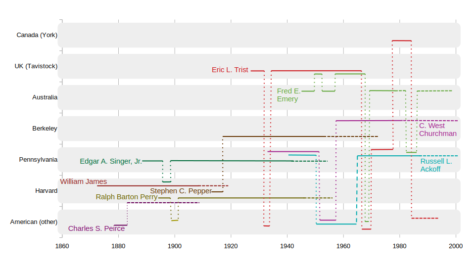In Toronto — partially in response to members of the International Society for the Systems Sciences looking for sustainable alternatives to the pattern of annual meetings outside of North America every other year — we’ve started a Systems Sciences Meetup group. There’s a rich history of people and events in the systems sciences in Toronto, and we’ve been remiss in keeping the momentum going.
The purpose of these meetups is to enable conversations amongst like-minded people interested in (continuing to) climb the learning curve on (the) systems science(s). Having a keynote speaker provides a centre around which the conversations can coalesce. In November 2009, Allenna Leonard led the first meetup with a talk on “What are the Systems Sciences”. Given the holiday season, we deferred the next meeting to January.
With the announcement of a Memorial Celebration for Russell Ackoff in Philadelphia in February, it seemed natural to prepare a session for those unfamiliar with his life and work. Thus, for the January 6 Systems Sciences Meetup, I’ll be leading a talk on “Russell Ackoff, abridged“. Having satisfied a personal goal to create a single double-sided page of highlights, I’ll be relying on two maps as visual aids.
Following a style prescribed by the master himself — not just examining the system, but also its environment — the professional timeline of Russell Ackoff includes his relationships with the Tavistock Institute for Human Relations (that included Fred Emery and Eric Trist), as well as C.… Read more (in a new tab)



